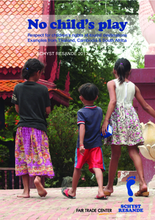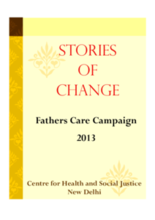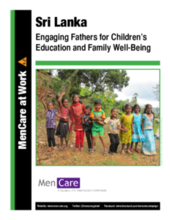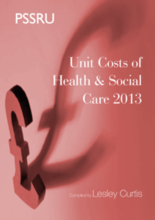Displaying 12841 - 12850 of 14579
This report was commissioned by the Swedish network Schyst Resande and conducted by the Fair Trade Center, with the overall objective of raising awareness of children’s rights in relation to tourism and travel destinations which many Swedish tourists visit.
MenCare India shares personal anecdotes from its 2013 Fathers Care Campaign.
This four-page publication describes World Vision and Promundo’s work in Sri Lanka in 2012-2013 as part of the MenCare campaign.
The Huffington Post has begun “30 Adoption Portraits in 30 Days,” a series designed to give a voice to people with widely varying adoption experiences, including birth parents, adoptees, adoptive parents, foster parents, waiting, adoptive parents, and other touched by adoption.
This report is a compilation of health and social care costs in the UK for the year 2013, including an article and corresponding information on the costs of residential care for children.
This article provides an outline of the early development of care and protection in Australia and New Zealand as a backdrop to an overview of child protection systems and policies and the current child protection profile in both countries. An overview of trends in relation to out of home care, including routes into care, care arrangements and permanency policies is provided.
This article focuses on the structural similarities and dissimilarities that exist between child protection systems in France and Switzerland, as exemplified by the evolutions of the last decade.
The article reviews the historical development of out-of-home care in Italy and Spain and compares foster family and residential care, as well as the main research contributions to these topics in both countries.
This paper discusses the challenges of reforming the child welfare and protection systems in Hungary and Romania -two countries in transition from socialism to capitalism- and the impact on children, young people, families, and professionals. The focus is on the efforts made to deinstitutionalise children from large institutions, develop local prevention services, and develop alternatives to institutional care.
In this paper, the author argues that the response to the orphan crisis in sub-Saharan Africa has focused mainly on mobilizing and distributing material resources to households with orphans. Only a few anthropologists have interrogated the frameworks and values on which the projects for orphans are based. The paper provides an analysis of the trends in foster-care research in Africa and the author suggests that current ethnographic data on foster-care practices do not adequately reflect the changing context of fostering in that continent.




